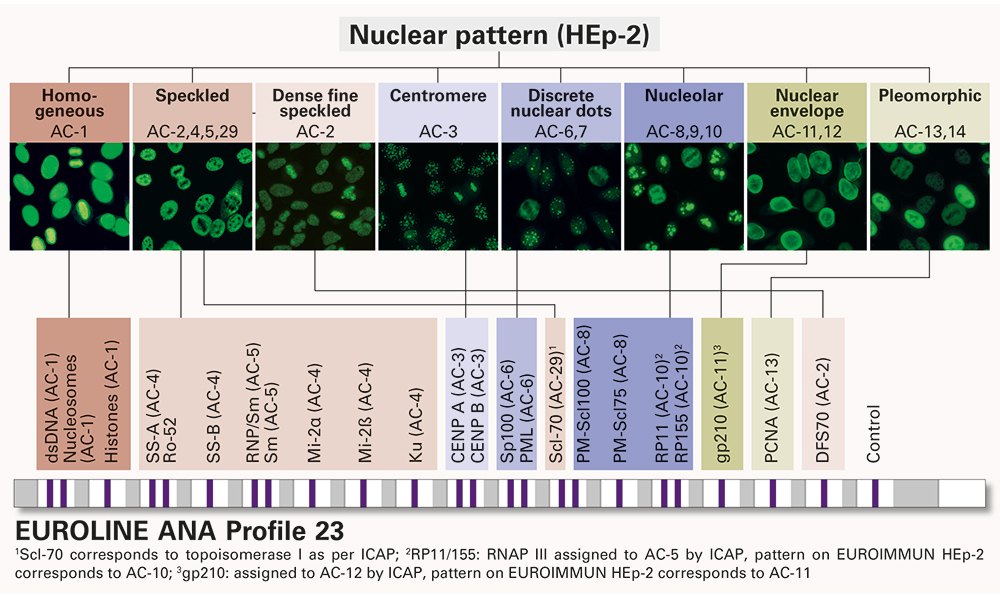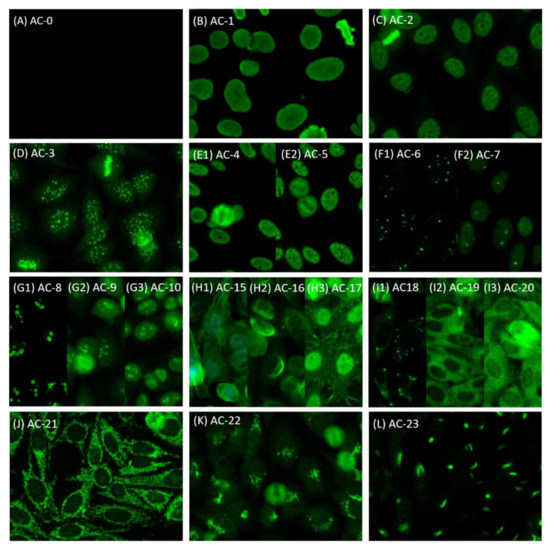Icap Nomenclature Ac-2 4 5 29 Meaning - What does a positive ana 1:160 with speckled pattern mean? The key toolbar shows links to the nomenclature and classification tree (figure 2), listings of designated nuclear, cytoplasmic, or mitotic. An ana of 1:160 is a low titter and can be seen in.
An ana of 1:160 is a low titter and can be seen in. The key toolbar shows links to the nomenclature and classification tree (figure 2), listings of designated nuclear, cytoplasmic, or mitotic. What does a positive ana 1:160 with speckled pattern mean?
The key toolbar shows links to the nomenclature and classification tree (figure 2), listings of designated nuclear, cytoplasmic, or mitotic. What does a positive ana 1:160 with speckled pattern mean? An ana of 1:160 is a low titter and can be seen in.
International consensus on antinuclear antibody patterns definition of
The key toolbar shows links to the nomenclature and classification tree (figure 2), listings of designated nuclear, cytoplasmic, or mitotic. What does a positive ana 1:160 with speckled pattern mean? An ana of 1:160 is a low titter and can be seen in.
¿Qué hay de nuevo con la nomenclatura y clasificación ICAP para
What does a positive ana 1:160 with speckled pattern mean? An ana of 1:160 is a low titter and can be seen in. The key toolbar shows links to the nomenclature and classification tree (figure 2), listings of designated nuclear, cytoplasmic, or mitotic.
Difference Between Ana And Ana Profile at Walter Lawrence blog
An ana of 1:160 is a low titter and can be seen in. What does a positive ana 1:160 with speckled pattern mean? The key toolbar shows links to the nomenclature and classification tree (figure 2), listings of designated nuclear, cytoplasmic, or mitotic.
Frequency of DFS IIF (ICAP AC2) and/or antiDFS70 antibodies in
An ana of 1:160 is a low titter and can be seen in. The key toolbar shows links to the nomenclature and classification tree (figure 2), listings of designated nuclear, cytoplasmic, or mitotic. What does a positive ana 1:160 with speckled pattern mean?
QAS Newsletter Contribution September 2022 » IUIS
An ana of 1:160 is a low titter and can be seen in. What does a positive ana 1:160 with speckled pattern mean? The key toolbar shows links to the nomenclature and classification tree (figure 2), listings of designated nuclear, cytoplasmic, or mitotic.
Nuclear Homogeneous Ana Pattern
The key toolbar shows links to the nomenclature and classification tree (figure 2), listings of designated nuclear, cytoplasmic, or mitotic. An ana of 1:160 is a low titter and can be seen in. What does a positive ana 1:160 with speckled pattern mean?
International consensus on antinuclear antibody patterns definition of
The key toolbar shows links to the nomenclature and classification tree (figure 2), listings of designated nuclear, cytoplasmic, or mitotic. An ana of 1:160 is a low titter and can be seen in. What does a positive ana 1:160 with speckled pattern mean?
¿Qué hay de nuevo con la nomenclatura y clasificación ICAP para
An ana of 1:160 is a low titter and can be seen in. What does a positive ana 1:160 with speckled pattern mean? The key toolbar shows links to the nomenclature and classification tree (figure 2), listings of designated nuclear, cytoplasmic, or mitotic.
International consensus on antinuclear antibody patterns definition of
An ana of 1:160 is a low titter and can be seen in. What does a positive ana 1:160 with speckled pattern mean? The key toolbar shows links to the nomenclature and classification tree (figure 2), listings of designated nuclear, cytoplasmic, or mitotic.
Application of Supervised Machine Learning to Recognize Competent Level
What does a positive ana 1:160 with speckled pattern mean? The key toolbar shows links to the nomenclature and classification tree (figure 2), listings of designated nuclear, cytoplasmic, or mitotic. An ana of 1:160 is a low titter and can be seen in.
An Ana Of 1:160 Is A Low Titter And Can Be Seen In.
What does a positive ana 1:160 with speckled pattern mean? The key toolbar shows links to the nomenclature and classification tree (figure 2), listings of designated nuclear, cytoplasmic, or mitotic.

.jpg)





.jpg)

